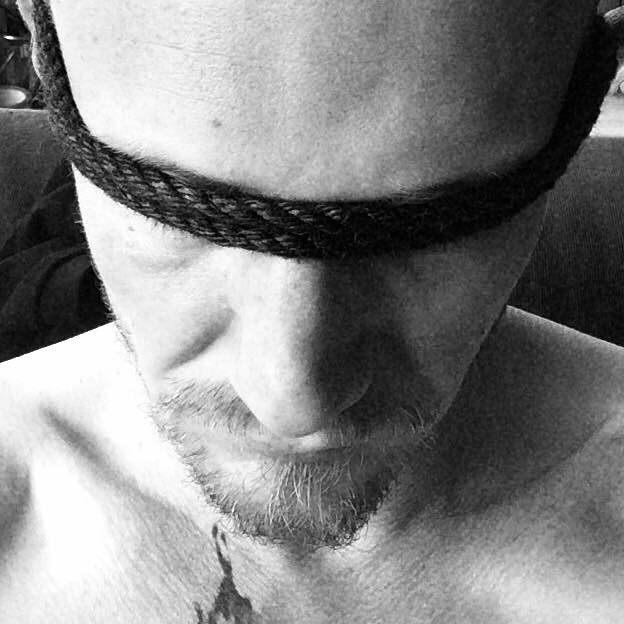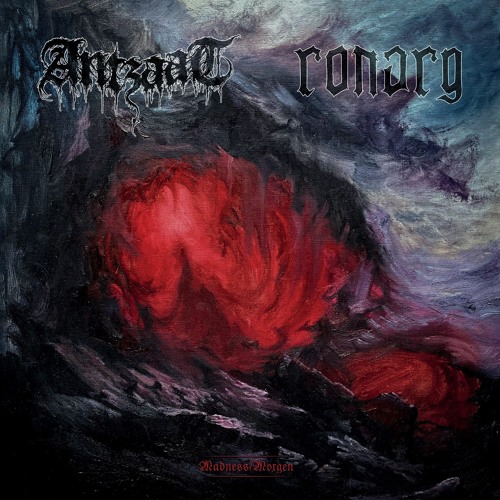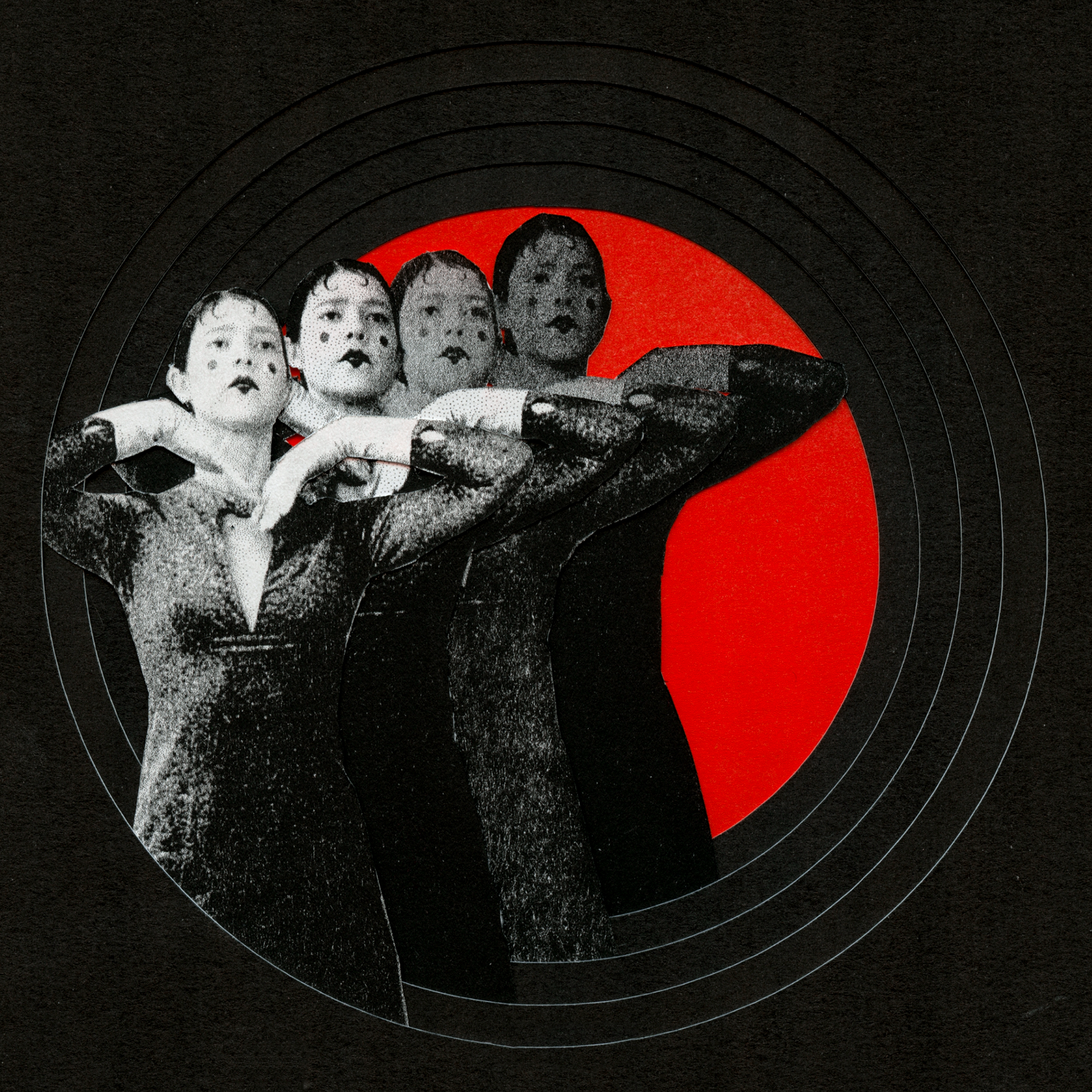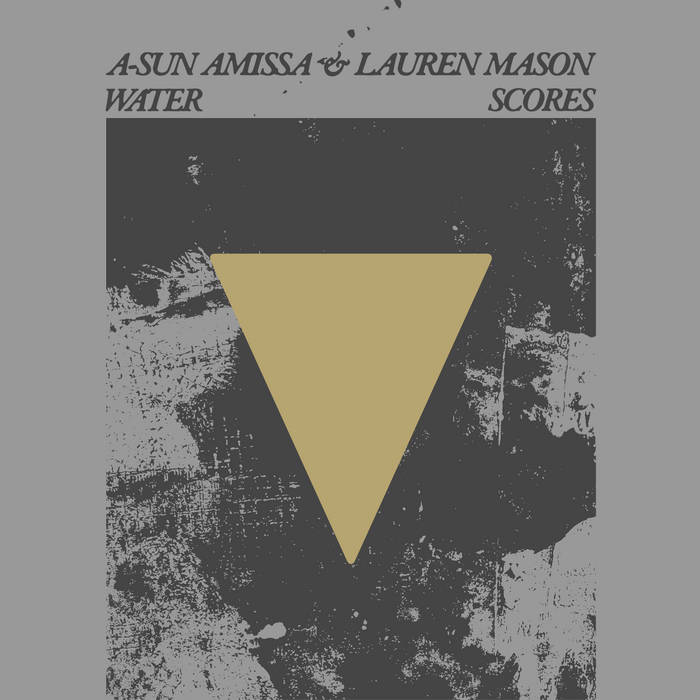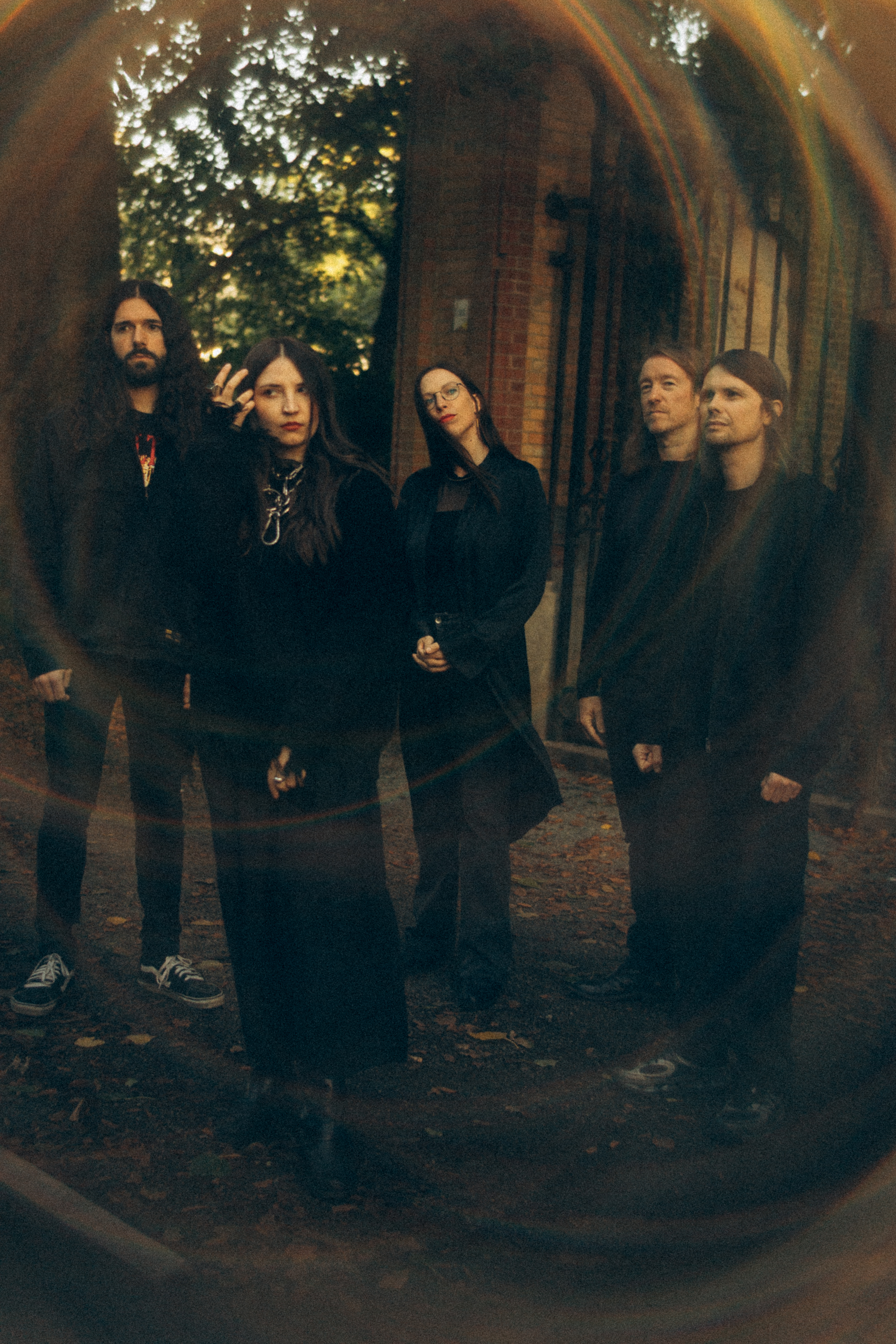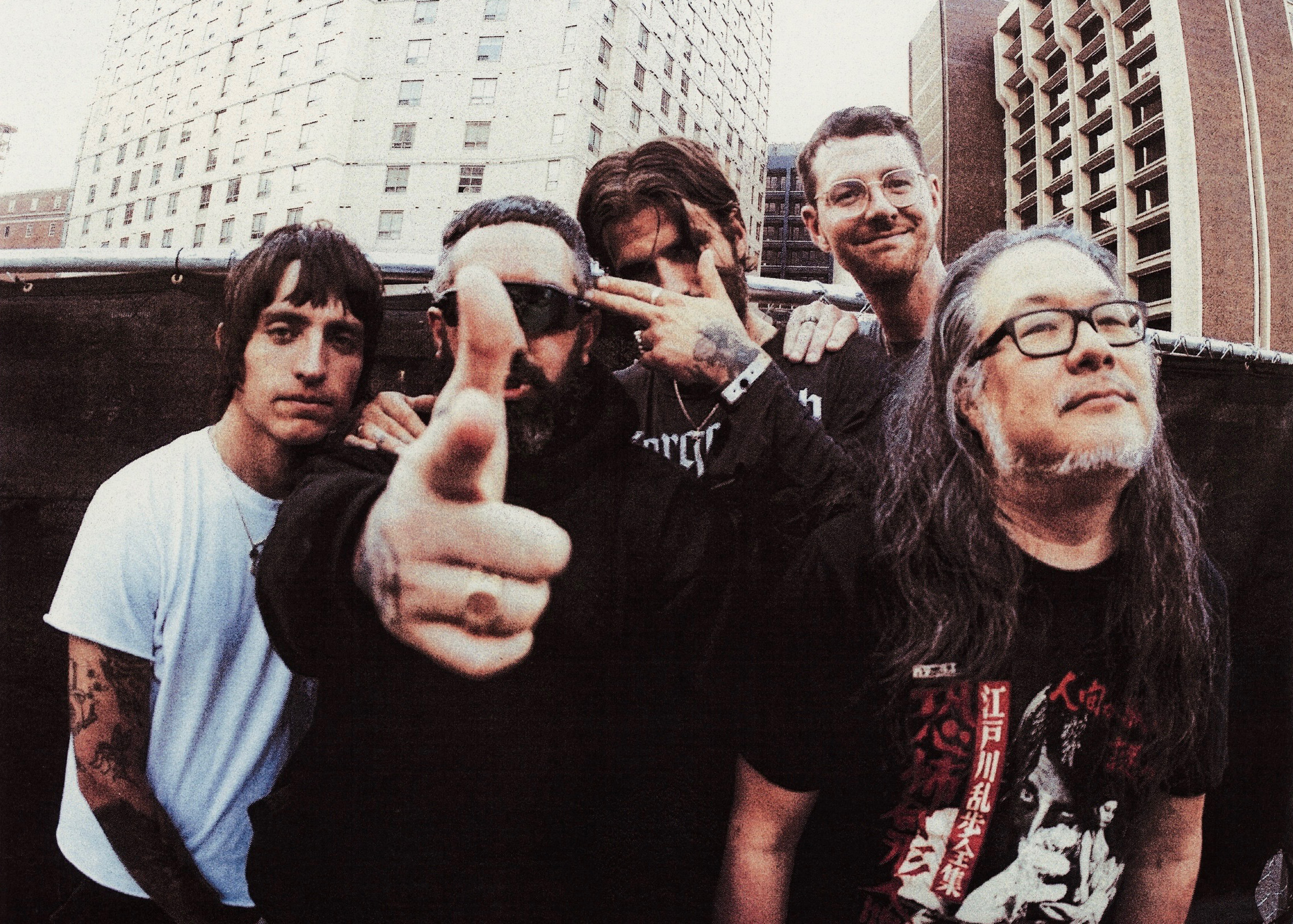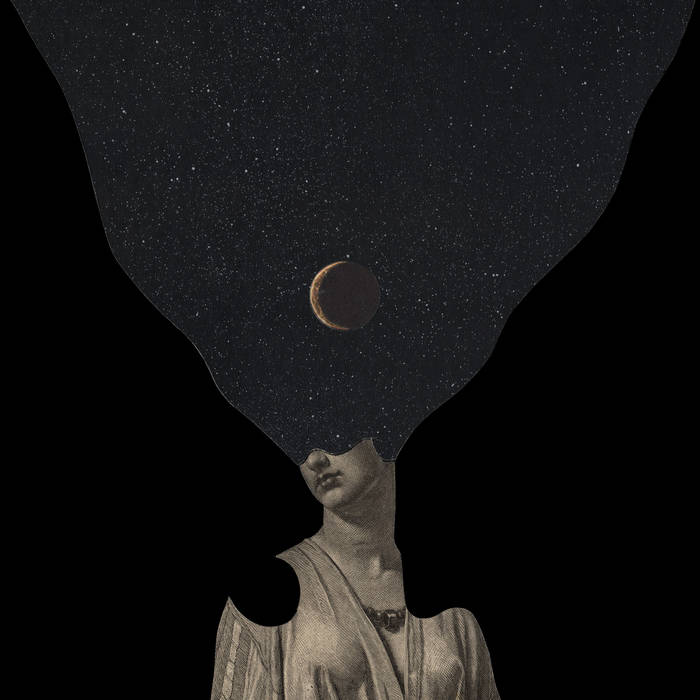One of the most enigmatic yet really friendly people on the Belgian scene is Nicolas van Meirhaeghe - but please do not make me pronounce his family name. Tongue twister. However, his music is sometimes also enigmatic. Also in the sense of - what will we be getting now? His musical range is very wide even though, when listening carefully to it, one might decipher the influences that sparked the love for music in young Nicolas. Some of these influences might come as a surprise and if you want to know more - check out our interview with the man that might be partially blind but believe me, when talking to him or listening to his music, you will soon forget about that because he has a lot to say and he does so from some pretty interesting perspectives. Enjoy this interview with Nicolas van Meirhaeghe, or if you do know him by his stage moniker Empusae!
So Nicolas, first of all thank you for doing this. You have already had a productive year, with two releases under your belt. We want to talk about both of them and also about the Empusae project and your music in general.
You’re welcome Thorsten. The pleasure will be mine, I’m sure!
Let’s start with a little bit of history – when did you become interested in music and general and electronic music in particular? Do you remember any kind of initiation point, maybe a record, a song, a concert?
I started a long time ago (around the ago of 15), as a drummer in bands with friend. One was a Grunge, the other one was more New Wave orientated. A few years later, I started composing my own Electronic / Industrial music, merely influenced by early nineties Industrial / Goth / Wave projects from Einstürzende Neubauten via Lacrimosa to Das Ich. The biggest triggers were nearly all releases from Cold Meat Industry, the atmosphere was exactly what I felt to express by creating my own interpretation of it.
You have now been publishing music for closing in on 30 years and 25 of these under the moniker Empusae. However, you collaborated oftentimes with a multitude of highly diverse artists, especially vocalists, such as Colin H. Van Eeckhout (Amenra) or Peter Bjärgö. Are you actively seeking out these musicians or is this more like a coincidental kind of thing?
For the case of Colin, I was reaching the end phase of composing the Lueur album, when I realised it was missing something. Around that time, I was getting acquainted with the universe of Consouling Sounds. That’s where I dug into the work of Amenra. Then it struck me and I knew exactly what the music was lacking: Colin’s voice. I didn’t know him personally, nor had he ever heard of Empusae. But I was so convinced of matching this music with his voice and energy that I managed to convince him. He was somehow seduced by the music and the story and concept of the songs. As for Peter Bjärgö, I had been listening to his music for decades. During that time I got close with bands like In Slaughter Natives, Desiderii Marginis, Deutsch Nepal, even joined them on stage occasionally. I ended up being a member of Ordo Rosarius Equilibrio. Being part of the CMI family somehow, I inevitably met Peter backstage at a festival. He and I instantly matched and we became close friends very quickly. It had always been a dream to one day collaborate with him. So after he contributed for one song on the album Symbiosis, I felt like we needed to collaborate again.
Have you got one or a few artists in mind that you would love to collaborate with? Maybe some artists that is still living?
Yes, definitely! I would love to work with artists like Jerome Reuter (Rome), Matt Elliott, Colin Stetson and Jason Köhnen (Athènes, Kilimanjaro Darkjazz Ensemble, The Lovecraft Sextet, and so many more). They all have a distinctive musical universe, somehow far from what I do but at the same time close to it, which would make a collaboration very interesting from my point of view. I would also love to collaborate with Lina Baby Doll (Deutsch Nepal) as well but this one might just happen sooner than later!
You are often collaborating with your amazing girlfriend, Christel, who does many visuals for you – how is it to be on stage with her?
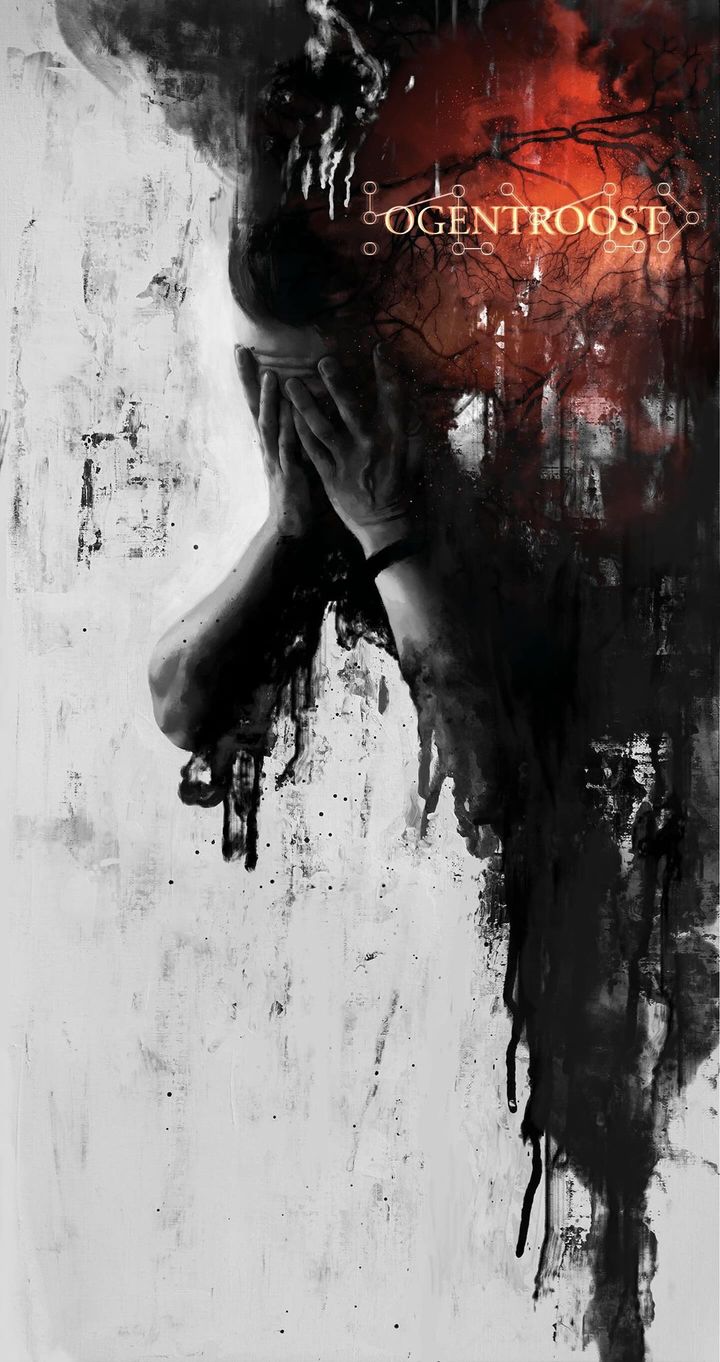
She represents the artist I always dreamed of being since the early Empusae era (end of the 90s, so I had to wait quite some time before meeting her). This project has always been about creating soundtracks for the imagination. She manages to translate the music into visuals. She does even more, she creates stories with her extraordinary imagination that inspire me directly. So having the luxury of having her to accompany me on stage and doing live visuals, is a a great honour.
Talking about “on stage” – how can you perform live even with your illness, which we will talk about in a moment?
I quit playing percussion in projects I was involved in, such as Tzolk’in, Ordo Rosarius Equilibrio and Triarii a few years ago due to my declining eyesight. My last show as Empusae was in 2022. Since then I stopped actively searching to perform live. It is getting quite complicated, especially the traveling, the dark clubs and concert venues etc. I would still be able to perform in certain technical and logistical conditions. I guess with preparation it could be doable, since the concept of Empusae concerts are more focused to be an audiovisual performance, so I don’t need to animate the audience on stage. I take care of the sounds and Christel takes the visuals under her wings.
Now that disease – can you explain how it affects your daily lives and how do you go about it? Also musically?
I was diagnosed with RP (Retinitis Pigmentosa) ten years ago. The first symptoms were night blindness. It became more severe over the years years, combined with lack of contrats, colour blindness, light over sensibility and loss of peripheral vision (tunnel vision). A few years ago I had to quit my job as a children caretaker. More and more daily habits, tasks and leisure activities are getting complicated. The first years were mentally very tough and sometimes it still is. But I am blessed a lot to be supported, helped, understood and loved by Christel. She makes this disease bearable and she makes me forget my disabilitly most of the time. As for music, until now, I was able to adapt and find ways to compose after each new phase of deterioration. At the moment I can even say that my current setting of writing enables me to express my self in the best way for decades, so RP opened doors which otherwise would have been unknown.
And then we should talk about your latest Empusae record Pilgrimage to Ganriki – it is a fact that you and your girlfriend share a passion for (everything) Japanese, food, culture, religion(?) – how often do you travel there? Is it “only” leisure or also business?
We both are passionate about almost all aspects of Japanese culture. We feel very much at home there somehow, despite the fact of being considered gaijin. There is a mentality of mutual respect for nature, for all things around us. They approach a lot of aspects of daily life as art. And yes, the food is simply fantastic. We have several friends there now, so we’re not complete tourists there anymore. We traveled twice to Japan so far. The first time we combined leisure with a few concerts and live appearances and interview at the DOMMUNE art broadcast show. Last year we went back to the same cities, but we skipped the concerts and concentrated on meeting up with our friends and docused on food and culture.
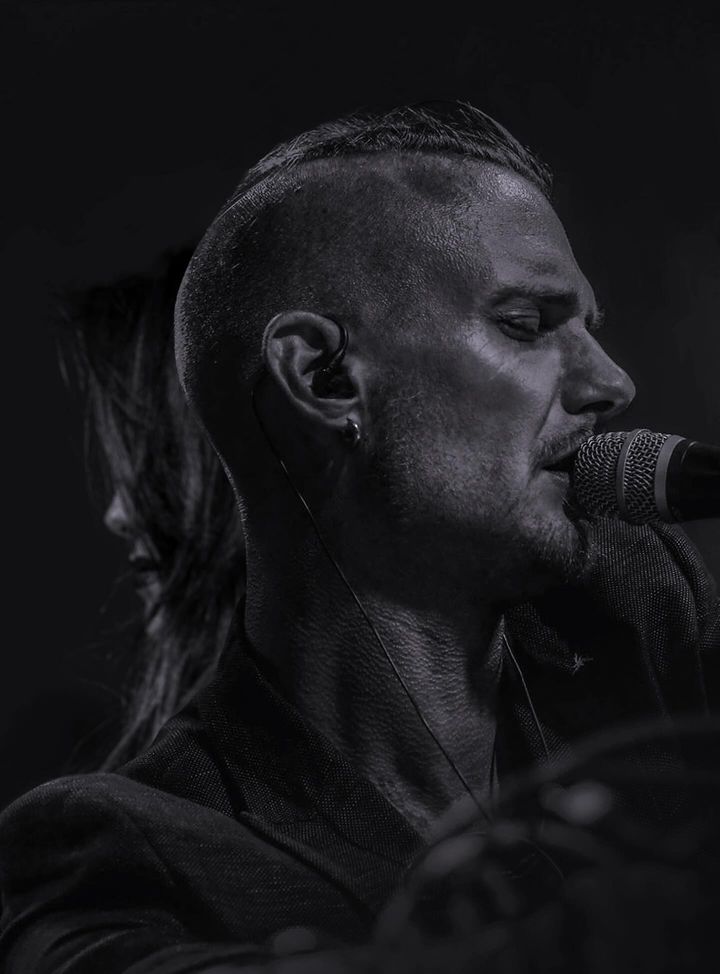
Your latest record is about a pilgrimage up a mountain top in Japan – can you first explain the meaning of wandering up that hill for Japanese religion and culture?
A few years ago, Christel found out there was a Shintoist deity of the blind and visually impaired residing in the sacred mountain, Mt. Inari. I actually didn’t really pay more attention to it, I was in a period of denial and depression, so I forgot about it. But she pinned the place on her map and planned it for our tripto Japan last year. So when the day, on which we wanted to visit the shrine, came, I still didn’t think much more of it than a touristic visit. But the more we approached the mountain, the more tension and excitement I felt. I also had no idea of what to expect. First of all, I didn’t expect it to be so touristic, so crowded. Which is something I’ve been avoiding as much as possible the last years. I also didn’t know we had to climb these thousands of irregular, narrow stairs with nothing to hold on to except my partner’s hand and my white cane. All assets were there for me to have a big panic attack. But instead, I felt stronger and more determined with each step, despite the obstacles and the heat. Christel was very surprised by this as she thought I would have asked to turn back as soon as possible. It was becoming like something I needed to do, for my mental health and my eyes’ sake. The hours passed and it simply became my personal pilgrimage. I was overwhelmed by a sort of spirituality I never had (I’m a atheist…). This feeling gave me strength, perseverance and self-confidence. Suddenly Christel told me “I think we reached the shrine of Ganriki”. My heart stopped for one beat and then the emotions overwhelmed me and I needed some moments to recollect myself. Afterwards we performed several rituals following the Shinto beliefs. Christel bought a candle and let it burn within the shrine as well as a spell of Ganriki, sanctified by the Shintoist priest. And another wood carved spell which was later to be ritually burned in a traditional ceremony.
Each track [on the record] is about one important part of the voyage up Mount Inari – with the ascend and descend being the two longest ones. How difficult was that voyage for you physically? Can you explain a little bit how important the incorporation of your own voyage was for the record?
Since this experience was such an intense epiphany, I knew almost immediately that I would transcribe it into a musical work. Since music is the most pure way for me to express myself, my emotions, my demons, my fantasies and in this case, my spiritual experience. It was also a way to make it everlasting, like writing it down for instance. When assembling the music into a narrative story, I was feeling that the experience was complete. My bond with Ganriki-San was sealed.
On your socials you have been speaking of a religious and otherworldly experience – can you describe the emotional value the pilgrimage had for you?
It’s had to explain as it’s such a personal experience, as you can imagine. It felt like drawing mental strength and force from the stone, the torii gates, the trees and the birds. The whole mountain is actually considered a deity, so the enforcing triggers were constantly and positively overwhelming, mentally and physically. And I still feel it again just by speaking about it. The moment that I did a prayer at the shrine, I remember I was emotionally blocked for a moment, it was too intense to bear all at once. It came some minutes, hours, [and also] days and weeks after. It still does at this very moment.
Do you think that a similar pilgrimage in Europe, for example to Santiago de Compostela, could do the same for you?
To be honest, I don’t think so. I also don’t feel the urge to or even the point of searching for another, similar experience. I found Ganriki and no other entity feels necessary. I’m not in search or in need of a spiritual experience other than the one I have. I might pay a visit again next time we visit the Fushimi-Ku area though.
Musically the record is a very lush Ambient thing – and uses a lot of sounds and soundscapes from Japanese music, right?
Yes exactly. It was my was to pay tribute somehow. I needed the challenge also to express myself for this, [to get] out of my comfort zone. It turned out to be extremely natural and organic to achieve. I was in a symbiosis with Inari and Ganriki.
Now you also released a new record together with Peter Bjärgö – under the “Onus” moniker. This is the second installment of that collaboration – what was the different approach this time?
For our first album Proslambanomenos I contributed to compositions done by Peter. For “Onus”, I composed four pieces with Peter in mind, I gave him the songs to add his contributions.
When listening to Onus I have the feeling of listening to an Electronic artist trying his hands successfully at Synthpop – is that some kind of inspiration for you? Synthpop in the sense of Depeche Mode or Wolfsheim, from Germany?
It’s actually striking you ask me this. Before I started working on the music, we kind of vaguely decided to make a Doom-Pop album (whatever that means). So it seems in a way, we succeeded at that. I never liked Synrtpop to be honest. So not sure it influenced me that much. More the Electronic music of the 70’-80’ and the Electro stuff from the 90’ I think.
Unlike many artists, you have a pretty devout following which seems to “follow you wherever you may go” – is that a course or a blessing for you?
I’m not sure what you mean by “following me”. I hope you don’t mean physically, in that case I won’t be able to see that. No, on a more serious note, I definitely see this as a blessing. Despite the different stylistic directions Empusae has gone through during the years, some people seem to still appreciate what I do and still recognise the same elements I implement into my compositions. I know I lost a certain amount of followers with the latest, more Ambient oriented course I went. My rhythmic Noise / Electro-Industrial albums were much more popular compared to what I do now. But the search of popularity: it is an aspect I was happy to let go many years ago. Since then I never felt so free and satisfied in what I do.
“Pilgrimage” and the second Onus record are very different from each other when it comes to soundscapes – is that something that you need, different sound-universes to keep things fresh for you?
It is exactly like you say. In the past I thought to recreate what I had done before in a slightly evolved way. Now I prefer to challenge myself, explore new boundaries and create different universes and collaborate with different, sometimes less obvious artists (more collaborative albums are to be released in 2024-2025)
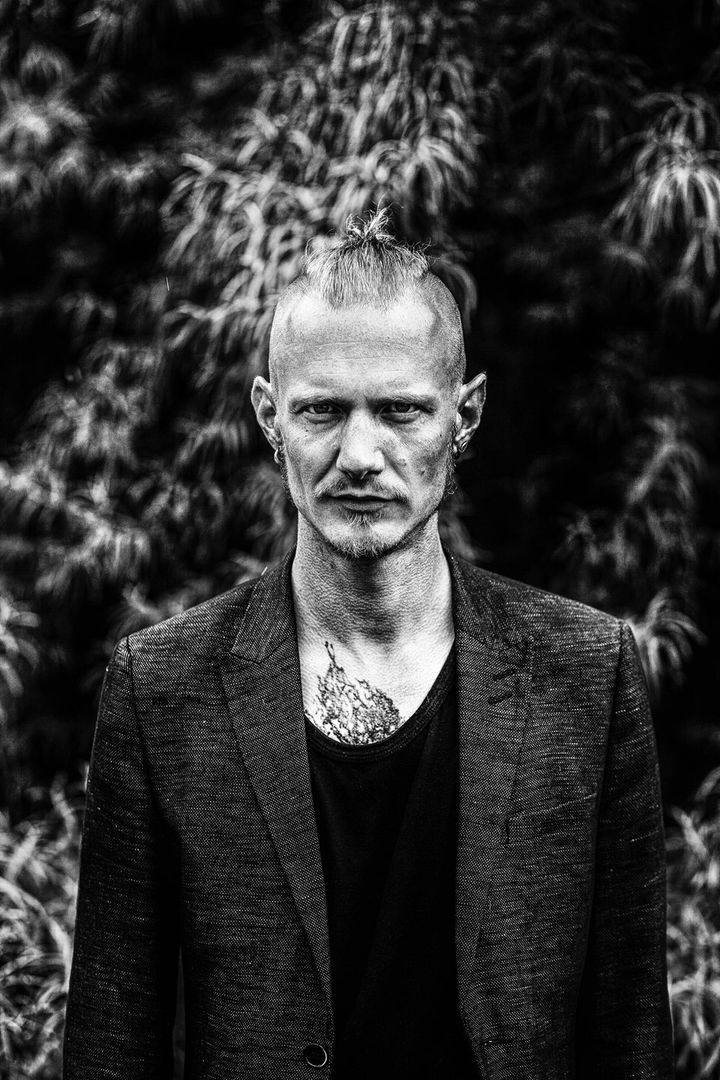
And now our infamous quickfire round, you get two alternatives and have to choose one of them and give a short explanation for your choice:
Dead Can Dance vs. Clan of Xymox? Dead Can Dance. Longtime admirer and being
influenced by them.
Einstürzende Neubauten vs. Psychic TV? Einstürzende Neubauten, for the same reason as above.
Robert Miles vs. Guru Josh? I’m afraid I’ll have to admit I don’t know either of them.
Air vs. Zero 7? - Air. Not familiar with with Zero 7
Morcheeba vs. Goldfrapp? Goldfrapp. Not familiar with Morcheeba.
Lustmord vs. Nordvargr? Nordvargr. Because he’s a genius in whatever he does and although his oeuvre might be less influential, to me he pushes the experiments much further and creates more twisted dimensions.
Treha Sektori vs. Inade? Treha Sektori, for the same reason as Nordvargr and because he’s a good friend.
Kyoto vs. Tokyo? It used to be Tokyo, for its diversity and dynamics. Since my last visit to Japan, it became Kyoto. Less hectic, less triggering and less crowded. More authentic, spiritual and peaceful.
Going out to for dinner vs. Cooking dinner at home? Lunch vs. dinner? Dinner. Lunch is usually practical. Dinner is focused on experiencing and sharing.
Soundtracks - Vangelis vs. Hans Zimmer? Hans Zimmer. More organic.
Neurosis vs. Isis? Isis. I usually prefer instrumental music and I’m not a huge fan of Scott Kelly’s voice.

